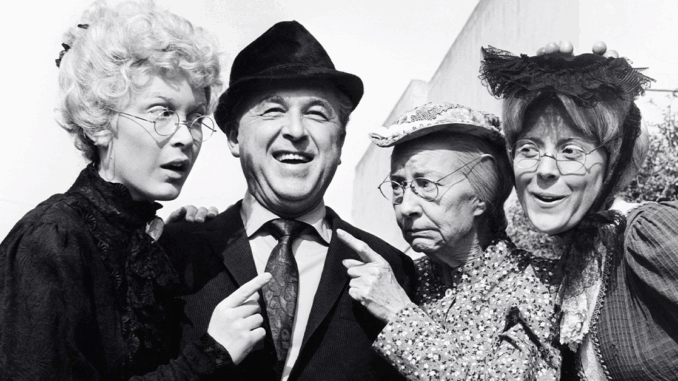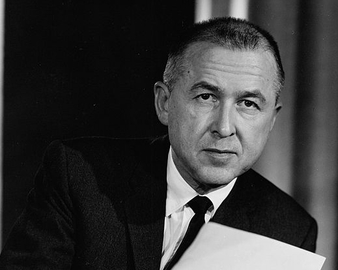
In the golden age of television, few names shone brighter than Paul Henning. The mastermind behind The Beverly Hillbillies, Petticoat Junction, and Green Acres, Henning’s imagination built a universe of laughter that defined an era. His shows became cultural landmarks, introducing America to the charm of rural comedy and proving that heartland humor could hold its own against city sophistication.
But behind the laughter and success was a man quietly paying a heavy price — one that came not in ratings, but in health, time, and peace of mind.
A Man Who Couldn’t Stop Working
By 1964, Paul Henning was one of the most powerful figures in television. His name appeared in the credits of multiple top-rated shows, and his writing fueled a nationwide obsession with small-town America. Yet, while millions of viewers laughed each week at the Clampetts, the Bradleys, and the Douglases, Henning himself was running on fumes.
In an interview with The Buffalo News that same year, Henning revealed that his doctor had issued a stark warning: “Slow down.” It wasn’t a suggestion. It was an ultimatum.
“I was surprised,” Henning admitted. “I was never bothered with hypertension, that sort of thing. But I haven’t had one day off since the show went on the air.”
His words were less a confession than a revelation — that even the man who made the world laugh was struggling to find joy outside his own scripts.
The Withdrawal of Rest

Henning described a rare Sunday off that only deepened his awareness of how consumed he’d become.
“Just after we’d gotten in, we went out to Bronxville to visit some old friends,” he said. “I didn’t know what was the matter with me. I felt terrible. Here I was, sitting around, no deadline to meet, and I could hardly concentrate on the conversation. My head ached. I felt sick. It was the first Sunday in so long that I wasn’t sitting at the typewriter. I think I was having withdrawal symptoms.”
That moment revealed a truth familiar to many creative minds: when your identity is built around producing, stillness can feel like failure. Henning’s body was begging for rest, but his mind had been wired for constant motion — for punchlines, scripts, and production deadlines that never ended.
A Dream Deferred
When asked what a slower pace might look like, Henning admitted he often dreamed about shifting his focus from television to film. Movies, he believed, would allow him to write stories at his own rhythm, without the relentless cycle of weekly episodes.
But the very ambition that had built his empire also kept him tethered to it. The shows needed him — and in many ways, he needed them. His legacy was too deeply rooted in the laughter of millions to simply walk away.
The Legacy Behind the Laughter
Paul Henning’s work defined a generation of television. His shows weren’t just hits — they were comfort food for a nation in transition. Rural sitcoms offered warmth, simplicity, and humor at a time when America was rapidly modernizing.
But for Henning himself, success came at the cost of serenity. His story serves as a reminder that behind every laugh track is a writer who stayed up too late, who pushed through exhaustion, and who sometimes forgot to slow down long enough to live the life they were depicting.
Even decades later, as The Beverly Hillbillies and Petticoat Junction continue to bring joy to new audiences, the man who made them possible stands as a symbol of both triumph and caution — proof that even genius must learn when to take a breath.